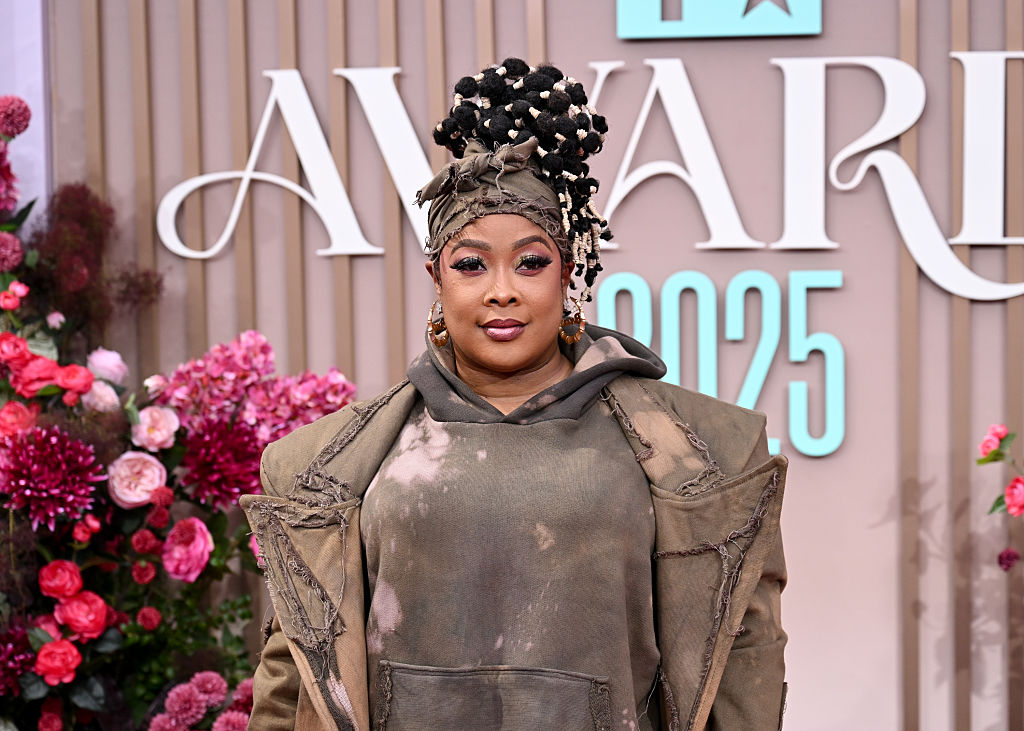Blood Sunday 60 Years Later: Is Democracy on the Line?
Blood Sunday 60 Years Later: Selma Stands Strong, But Is Democracy On The Line? - Page 2
Share the post
Share this link via
Or copy link
SELMA, Ala. — On March 7, 1965, Black civil rights activists were brutally attacked while marching for voting rights in what became known as Bloody Sunday. The violent response to their peaceful protest sparked national outrage and led to the passage of the Voting Rights Act of 1965.
Now, 60 years later, thousands are gathering in Selma for the 2025 Selma Bridge Crossing Jubilee to commemorate this historic moment. The event serves as both a remembrance and a call to action, highlighting ongoing voting rights challenges and urging the next generation to continue the fight for democracy.

Source: Michael M. Santiago / Getty
Bloody Sunday: A Defining Moment in Civil Rights History
On March 7, 1965, more than 500 Black demonstrators gathered at Brown Chapel AME Church in Selma. They planned to march 54 miles to Montgomery to demand voting rights and hold Alabama Gov. George Wallace accountable for the police killing of Jimmie Lee Jackson, a Black church deacon.
Love Bolitics? Get more! Join the Bossip Newsletter
We care about your data. See our privacy policy.
CBS 17 states that when the marchers reached the Edmund Pettus Bridge, more than 50 Alabama state troopers and dozens of possemen on horseback blocked their path. Despite being unarmed and peaceful, the marchers were met with tear gas, batons, and horse-mounted officers trampling them.
Previously reported by BOSSIP, John Lewis, then chairman of the Student Nonviolent Coordinating Committee (SNCC), was among those beaten with a troopers club, suffering a fractured skull—at just 25 years old at the time. At least 17 people were hospitalized, and 40 others required medical treatment.
The attack was broadcast live on national television, exposing the brutality of segregationist policies and forcing America to confront its deep racial injustices.
Two weeks later, Dr. Martin Luther King Jr. led a federally protected march of more than 3,000 marchers on a five-day, 54-mile march to Montgomery. That summer, President Lyndon B. Johnson signed the Voting Rights Act of 1965 into law, banning racial discrimination in voting.
They marched so we could vote. They bled so we could have a say. So why, in 2025, are we still fighting the same battles?
See list of events for the Bloody Sunday 60th anniversary and how we can continue protecting voting rights in 2025 after the flip!
2025 Selma Bridge Crossing: 60 Years of Progress

Source: Michael M. Santiago / Getty
This weekend, thousands of attendees, activists, and politicians will gather for the 60th anniversary of Bloody Sunday. The theme of this year’s Selma Bridge Crossing Jubilee is “Fighting Forward”, focusing on both the progress made and the modern-day threats to voting rights.
CBS 17 lists some of this weekend’s key events:
- Friday, March 7 – Youth Freedom March, allowing young activists to walk in the footsteps of civil rights pioneers.
- Saturday, March 8 – Jubilee Parade and the Freedom Flame Awards Gala, honoring civil rights leaders such as Opal Lee, the “Grandmother of Juneteenth.”
- Sunday, March 9 – Symbolic Bridge Crossing, where thousands will walk across the Edmund Pettus Bridge in tribute to the original marchers.
- March 10-14 – Selma-to-Montgomery March Reenactment, retracing the historic 1965 voting rights march.
In CBS 17, Selma Mayor James Perkins Jr. states this pivotal commemoration is more than just a historical event—it’s a wake-up call.
“Every year, this jubilee reminds us of both how far we’ve come and how vigilant we must remain. The story of Bloody Sunday isn’t just Selma history or Black history—it’s American history that changed the course of our nation.”
These are the facts that many modern-day Trump supporters want to erase.
Voting Rights in 2025: Still Fighting for Democracy

Source: Michael M. Santiago / Getty
Although Bloody Sunday helped secure the Voting Rights Act of 1965, voting rights in America remain under attack. According to the Southern Poverty Law Center (SPLC), modern voter suppression tactics have shifted from state legislatures to Congress, with new laws threatening to disenfranchise Black and marginalized communities.
One such law is the SAVE Act, a controversial bill that, if passed, would impose the first-ever federal rollback of voting rights in U.S. history. According to the SPLC, the bill aims to:
- Restrict voter registration access, disproportionately affecting Black, Latino, and low-income communities.
- Withhold billions in federal funds for Medicaid, Head Start, and other essential programs.
- Eliminate protections against voter intimidation that have been in place for decades.
WAKA 8 reports Dr. Benjamin Chavis Jr. emphasizing that Selma’s fight for voting rights is a continuing struggle for all Americans.
“Selma is the cradle of voting rights,” Chavis said. “It represents 60 years of progress, but also reminds us that the fight is far from over.”
Which is so true in the wake of a crumbling democracy and fights of an oligarchy exist right before our eyes of the new administration. Project 2025 is unfolding.
Honoring the Legacy of Bloody Sunday in 2025
WSFA 12 states that “the Montgomery-based [SPLC], held a gala Friday evening to commemorate the sacrifices made and to honor those still fighting today.” During the gala, activists and leaders called for continued action against voter suppression.
Former U.S. Senator Doug Jones warned about modern attacks on equality:
“There seems to be an attack on folks who want to treat folks equally, to make sure that there is no racial or gender discrimination. That is under attack right now, and that’s unfortunate because I’m one to believe that everyone should have those equal opportunities, and we should celebrate that diversity.”
The SPLC also wrote the commemorative piece “How to be a foot soldier for Bloody Sunday’s 60th Anniversary,” urging those who want to continue the work of civil rights leaders to take direct action. Here’s how individuals can make an impact:
- Join a local organization advocating for voting rights and racial justice.
- Call Congress and demand a NO vote on the SAVE Act while supporting the John R. Lewis Voting Rights Advancement Act.
- Attend town halls and challenge elected officials on their stance on voting rights.
- Engage in peaceful protests and First Amendment-protected demonstrations against restrictive voting laws.
- Build community alliances that foster grassroots activism and civic engagement.
In the call to action, the SPLC also instills hope:
“At times like these, when forces intent on taking us backward are so emboldened, it can be easy to feel powerless,” the SPLC states. “However, we are not powerless. In a democracy, power comes from the people—as the events of 1965 teach us.”
The revolution is STILL being televised.
The Fight for Voting Rights is Not Over
Bloody Sunday was a painful but transformative moment in American history. However, the work is not done.
In WAKA 8, Congresswoman Terri Sewell states,
“This year’s pilgrimage is especially meaningful as we commemorate the 60th anniversary of Bloody Sunday, the triumph of human courage, the power of grassroots activism, and the resilience of our democracy.”
Sixty years ago, Black men and women risked their lives so that future generations could have a say in their government. Today, those hard-won rights are under attack again.
The question is: Will we allow history to repeat itself, or will we continue the fight they started?
Related Tags
Alabama Bloody Sunday Bolitics Democracy Edmund Pettus Bridge For Your Information government John Lewis Lauryn Bass Martin Luther King Martin Luther King Jr. MLK Montgomery News Newsletter Protest Protestors Selma Trump voter suppresionStories From Our Partners
-

Whew Lawd! The Hottest Thirst Traps Of The Week, Vol. 129
-

'Oh! The Grammy Goes To Luther Vandross!' Funniest Tweets, Memes, Viral Videos & More From The 2026 Grammys
-

The Baddest Aquarius! A Good Googly Gallery Of Draya Michele’s Hottest Thirst Traps On The Gram
-

Social Media Erupts Over Nicki Minaj Cozying Up To Trump At DC Summit, Spirals Into MAGA Minaj Mayhem








